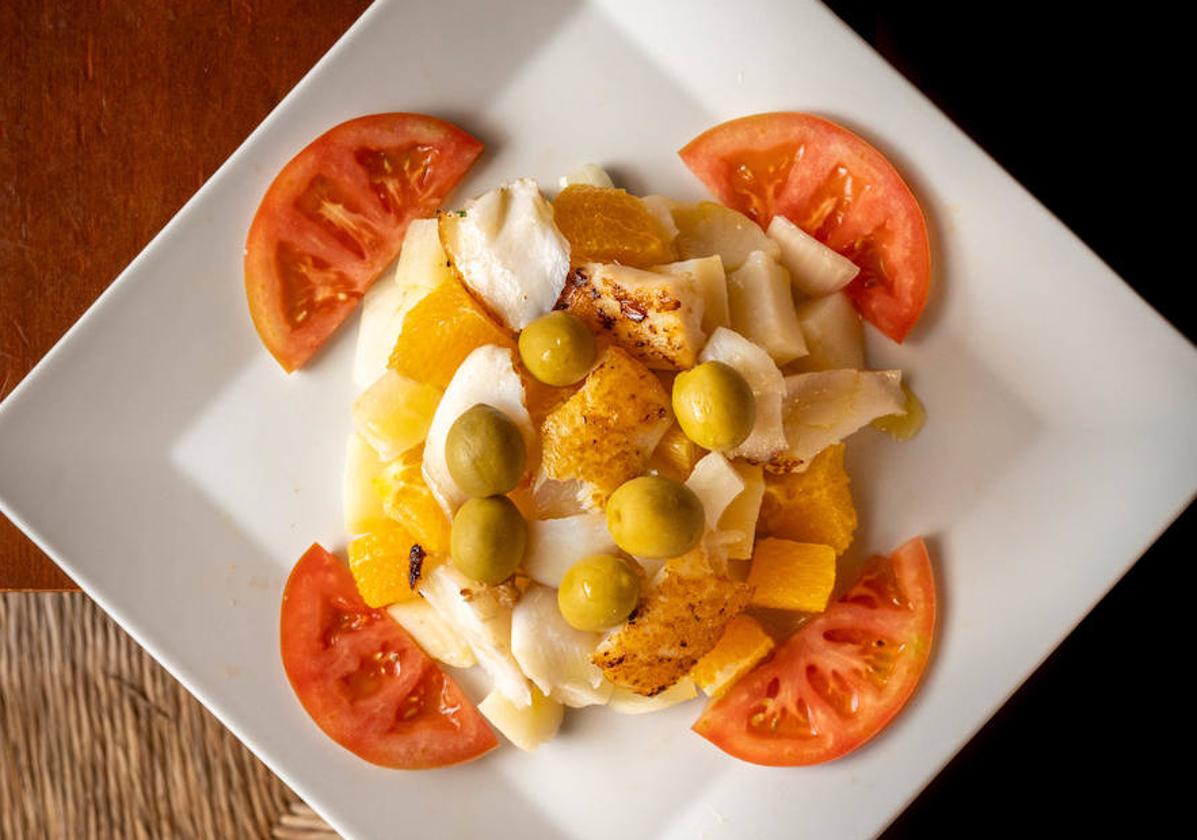A traditional salad, with cod and orange, named after Malaga
This simple and delicious dish exemplifies local cuisine, bridging the gap between the sea and the vegetable garden
Carmen Alcaraz
Friday, 8 September 2023, 13:29
Although they are often so integrated into our culture that we hardly even notice the connection, there are a large number of dishes and products that have a specific place as part of their name. An identifer that is often not much more than a popular attribution rather than native to the place in question. Russian salad, York ham, Manchego cheese and Neapolitan ice cream are just a few examples.
Ensalada malagueña
Malaga has its own signature dish, the ‘ensalada malagueña’ (Malaga salad). This simple and delicious recipe exemplifies the local cuisine, bridging the gap between the sea and the countryside, combining elements from the coast (even if cod isn’t a local species) with produce from the vegetable garden. Humble ingredients like potatoes, oranges, spring onions, Aloreña olives, and parsley come together, and the addition of cod adds depth and a unique identity to the dish.
In different locations in the province, it is customary to include additional ingredients or substitutions, modifying the names of these dishes. For example, there’s the ‘salmorejo de invierno’ from Cuevas de San Marcos, made with purple carrots, spring onions, oranges, and cod; the ‘ensalada arriera’ from Torrox, which includes tomatoes, oranges, potatoes, onions, and olives; or the ‘pío antequerano’, similar to the ‘ensalada malagueña’ but without potatoes. This regional diversity adds a rich tapestry of flavours to traditional recipes.
In some areas, they add tomatoes, black olives or use tuna instead of cod. If using cod, the salted fish is soaked first to remove the salt (the most traditional method), or it can be used fresh and grilled, or even smoked.
Some people incorporate their own twist into the dressing, and everyone adds their unique touch to the cooking point of the potatoes.
Another characteristic of the ‘ensalada malagueña’ is that, despite being a traditional dish, it is still widely enjoyed in many homes, often as a main course, throughout the year. It can be served either lukewarm or cold, always dressed with extra virgin olive oil.
